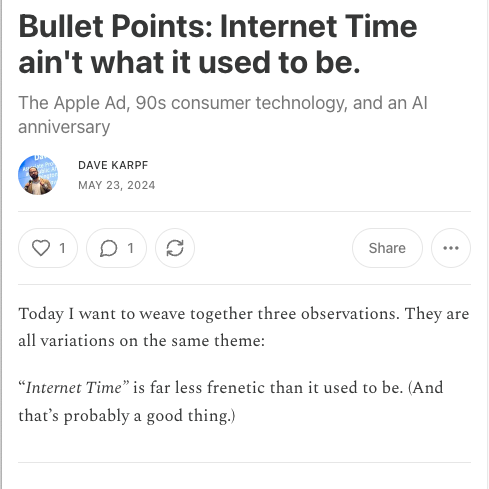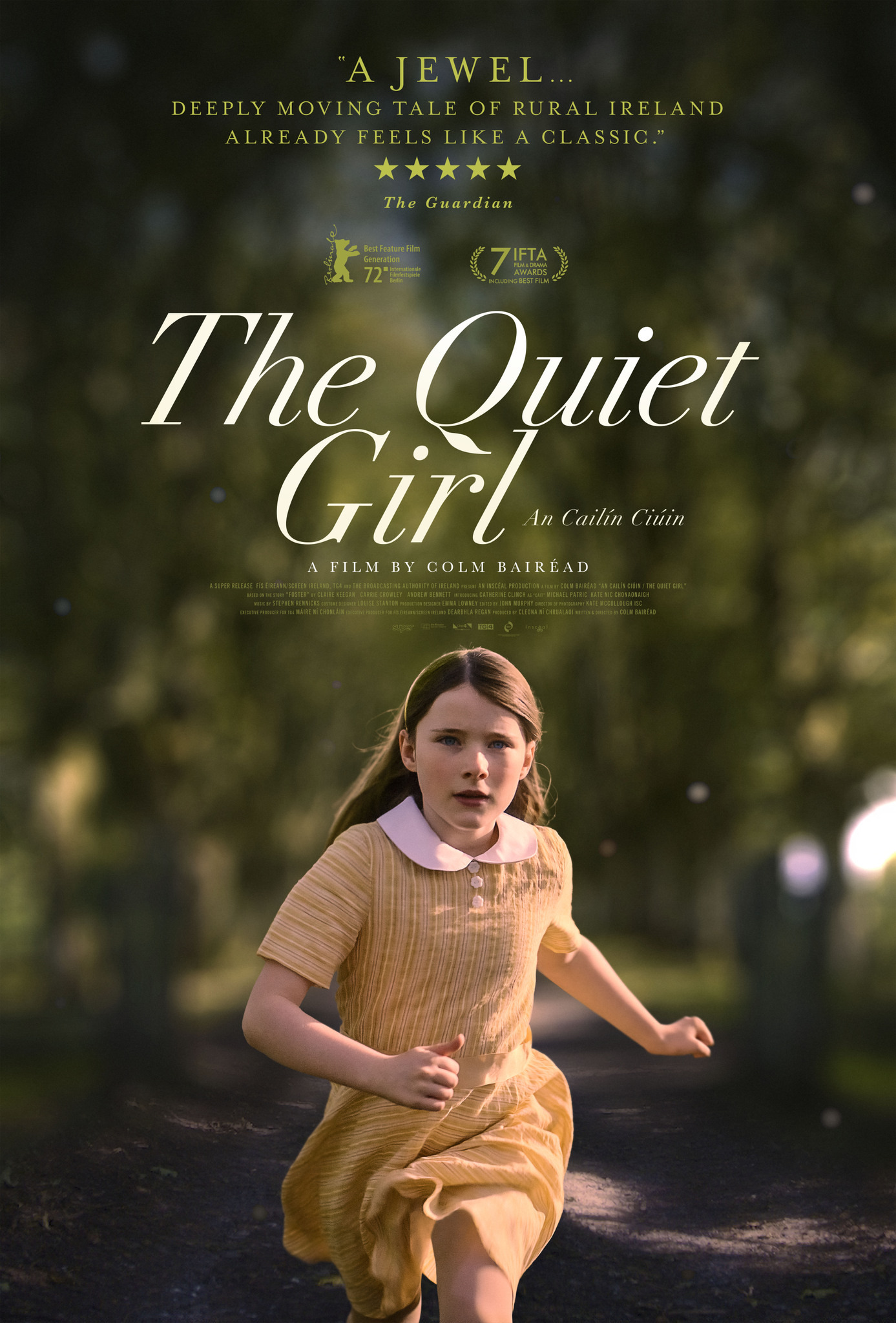This piece by Dave Karpf from last week is excellent. He weaves three ideas together under the thesis what if tech is just plateauing? MKBHD’s takedown of the Rabbit R1 and the AI Pin are great, and maybe they’re indicative of the top of the S-curve. From Karpf:
…the mythos surrounding Moore’s Law keeps being propped up, Weekend at Bernie’s-style.
Sure, the Rabbit R1 might be utter trash. Yes, the Humane AI pin is so bad it’s unreviewable. But why be so dour about these early models? Just focus on how much better the next one will be. Surely it’s just around the corner. (Because Moore’s Law!)
And yes, virtual reality/augmented reality/extended reality headsets keep being just a couple years away from a radical breakthrough. But don’t judge the industry on its track record. Judge it on its aspirations! (The future is arriving! Because Moore’s Law!)
It’s not limited to new product categories either — new generations of laptops and cellphones just don’t matter like they used to. The only reason to replace your two- or three-year-old phone now is if it’s broken or the battery is toast. I’d suggest a couple more things for the list – autonomous cars and home automation/smart speakers have really stopped making headlines.
Tyler Cowen recently posted about AI safety teams disbanding — while he has his own reasons for why this is happening, I think it’s worth considering that the threats just aren’t that severe. If AI is indeed reaching the top of the S-curve, I don’t think there’s much risk other than the social/criminal issues we’ve seen so far — deepfakes, scams and individual threats to be sure, but nothing on the Skynet level. There are amazing applications for AI in truly life-altering areas, but they seem to work best as an augmentation for human skill, not a replacement for it. This is excellent and revolutionary stuff. It’s just not what we were promised.
Here’s a fantastic piece in NYT about a woman with a prosthetic arm equipped with AI. Revolutionary stuff.
Here’s a piece in Variety Magazine (via) making a similar case for music — if we’ve seen the best of what’s possible, where’s the threat? The whole appeal of the creative process (art, music, writing) is to provide something new – a way to look at the world, express a feeling, or provoke reflection. AI might be putting Audiojungle and Unsplash at risk (I’m even skeptical about that), but if I was a creator, I wouldn’t lose much sleep over it right now.
Here’s one more from Om Malik . In it, he links to a Purdue study with this nugget of information:
Our analysis shows that 52% of ChatGPT answers contain incorrect information and 77% are verbose. Nonetheless, our user study participants still preferred ChatGPT answers 35% of the time due to their comprehensiveness and well-articulated language style. However, they also overlooked the misinformation in the ChatGPT answers 39% of the time. This implies the need to counter misinformation in ChatGPT answers to programming questions and raise awareness of the risks associated with seemingly correct answers.
And if they’re out of training material, it’s unlikely to see how it gets better.
Also, how did I not know that Brian Merchant has a substack? He wrote one of the best nonfiction books I’ve read.






